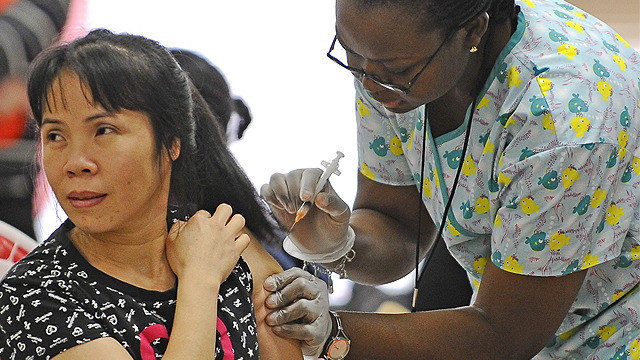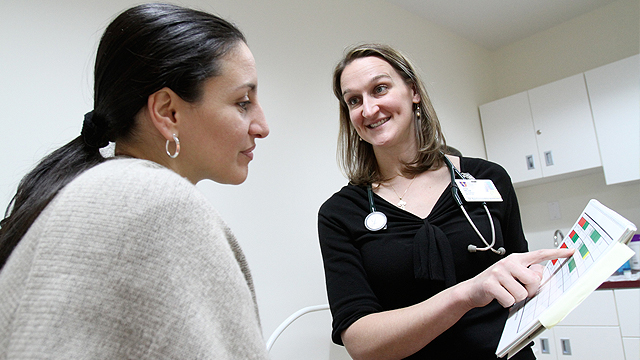



Bioethics Matters: Healthcare as Evangelization
Salt + Light Media
Friday, May 29, 2015

Healthcare as Evangelization
Leo Walsh, CSB, STD

In The Windsor Star (Friday, November 14, 2014) there is a Letter to the Editor lauding the wonderful treatment the writer as patient received in the emergency department. Was this collective work of the healthcare workers an example of evangelization?
The New Evangelization is a phrase used exclusively of the missionary work of the Catholic Church. We, as Catholics, bring to non-Christians the news of God’s saving love made incarnate in His Son’s life, death and resurrection, and of the continuance of that love through the Holy Spirit. We bring the same message to non-practising Christians, so that they may return to a more active faith life. We evangelize our fellow Catholics who do not practise that they might find new life through the sacraments, especially the Eucharist. Finally, through the work of the Holy Spirit, we strive to deepen the love relationship between all of us and the God who loves us. This final work is actually the first step in the process. Without our having a living relationship with God through Jesus in the Holy Spirit our evangelizing is a work of hypocrisy and doomed to failure.
The above is undoubtedly true. If we were true to this vocation, we could sleep easily with a peaceful conscience. But is it enough?
For many, many years, we Catholics have cooperated with non-Catholics, adherents of many different faiths or none, in various works of mercy. These include efforts to bring justice to the poor, to try to ensure for them adequate food, clean water, decent housing, basic healthcare and education. We work together to banish corruption from governments, the judicial systems, police forces, and from institutions generally. We cooperate in seeking dignified treatment of the vulnerable at all stages of life. The list is long.
As we turn to the New Evangelization, this cooperation is seen by Catholics as a work of the Church required by its essential missionary nature, the work of various Catholic communities and institutions and of individual Catholics. Our cooperation with men and women of goodwill to bring about social justice is the Church evangelizing. Through our actions, we teach the Law of Christ, and we draw people to love and imitate its Author.
Our co-operators, though, aren’t they evangelizing too? And men and women of good will, might they be evangelizers also? Of course, they may be simply engaged in a type of social work which can be efficient at a certain level without involvement with Christ, either explicitly or implicitly. The same may be true of Catholics or other Christians. The work in itself, however, is good and has good consequences.

Mainline Catholicism maintains that there is salvation outside the visible Church and that we cannot restrict the work of the Holy Spirit to those who are baptized. Any good work, then, is a work of the Spirit, and reveals the love of God directly or indirectly.
Healthcare, care of people with respect to their health needs, is an immensely important good. Like any human good, it can be corrupted and debased through the common vices of people (the seven deadly sins) and through muddled thinking, the child of bias and darkness of mind and heart. In itself, though, it is a great good. To repeat, any true human good comes through the Holy Spirit and through Him alone, and healthcare is one such good.
Our Catholic healthcare institutions and healthcare workers should understand themselves as agents of evangelization. Explicitly, they bring the love and care of Jesus for poor and sick (all those who are ill are impoverished), and so spread the good news of God’s love for each of them. Such love-in-action outstrips sermons and homilies in evangelization.
A secular hospital as such has no direct connection with Jesus and his curing of the sick. Sometimes the institution, or part of it, contradicts not only Jesus’ love of the sick and suffering, but even human virtues in their regard. Killing our most vulnerable (the unborn) and maltreating (even killing) our seniors stand in direct contradiction to love and concern. But when a secular hospital is dedicated to the care and comfort of patients as individually important, and with medical expertise, then God’s Kingdom is being extended. People are being evangelized towards Good, who is God. These are early steps in the journey towards the Father of our Lord Jesus Christ, but they are steps on the true journey.
The ethos of a Catholic hospital is characterized by its open acceptance of biblical truth about God and each person as made in the image and likeness of God and redeemed by Jesus Christ. Healthcare is directed to brothers and sisters in Christ. The ethos of a good secular hospital reveals itself in its caring for all persons in love and truth. This is a work that points beyond itself to the Author of life, even if this lesson can at times be seen in a mirror darkly.
Leo Walsh, CSB, STD, Professor Emeritus, Moral Theology, in the Faculty of Theology of the University of St Michael’s College, is the Pastor at St Paul’s Church, LaSalle, Ontario, and Vice-President, Academic, Assumption University. Father Walsh is a staff member of the Canadian Catholic Bioethics Institute.
Photo: (CNS/Gregory A. Shemitz) (CNS/Tannen Maury, EPA)
Related Articles:
<<
SUPPORT LABEL
$50
$100
$150
$250
OTHER AMOUNT
DONATE
Receive our newsletters
Stay Connected
Receive our newsletters

Stay Connected







